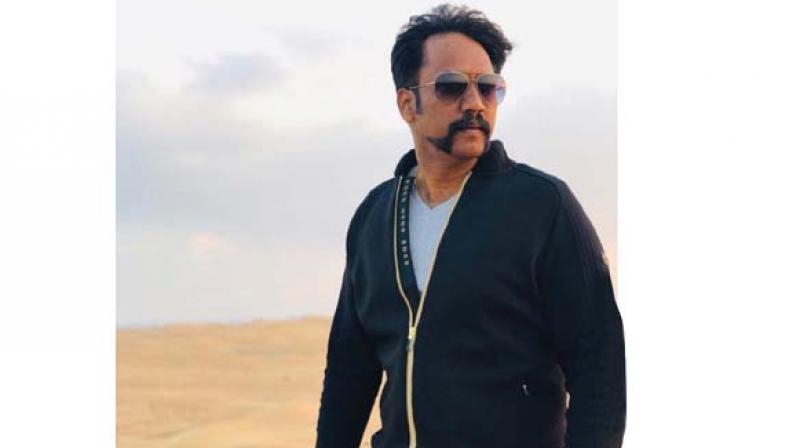Kannada gothilla? city cop out to break language barrier
Police inspector, Rajesh L Y, currently posted at the Bengaluru Developmet Authority (BDA), clearly falls in the latter bracket.

From a family of lecturers, police inspector Rajesh L.Y. is not your every day cop. From teaching Kannada to techies in the city as a way of dealing with cases of road rage, to lecturing rowdies on the virtues of reforming into law abiding citizens, he has given law enforcement a different image altogether, leaving both his colleagues and Bengalureans pleasantly surprised, reports PRAGNA L. KRUPA
The police necessarily have a tough image, but there are some who believe being approachable and friendly works better in law enforcement. Police inspector, Rajesh L Y, currently posted at the Bengaluru Developmet Authority (BDA), clearly falls in the latter bracket.
While some policemen may deal harshly with incidents of road rage in the city, he came up with an idea to strike at the root of the problem. Realising there was a language barrier in multi-cultural Bengaluru, which is home to people from all over the country, he decided to bridge it by distributing books on basic Kannada among the people and also organise basic Kannada classes during the weekends. His reasoning? If people understood each other better, the less the chances of them getting into a fight.
It was during his posting in Attibele and Anekal that he came to realise that a majority of the road rage cases were the result of misunderstandings caused by miscommunication. “Once a woman approached us blaming the auto driver of being harsh and rude to her. But on talking to the auto diver, we learnt that he had to raise his voice due to the traffic and as he had replied in Kannada to her questions, the woman had misunderstood him,” he recalls.
An incident in Mico Layout in the city too proved to be a turning point in his career. “A software engineer from Uttar Pradesh and one of our constables got into a fight over a lost passport complaint. The engineer kept insisting that the cop had refused to take his complaint when it had already been registered. When I inquired, I found that a misunderstanding had been created between the two due to the language barrier,” he says.
Not blaming migrants to the city for their lack of familiarity with the local language, he came up with the idea of helping them learn it instead. His targets are private company employees and techies, who are migrants to the city and unfamiliar with the local language. Besides distributing books on basic Kannada among them, he began organising basic English classes for the police too after he was transferred to the Devanahalli traffic police unit. In addition, he held free competitive coaching classes along with language classes while working in the rural areas.
But he has not stopped there. To improve police conduct with the public and curtail malpractices, he installed CCTV cameras inside the HSR Layout police station when posted there in 2008. And while with the Devanahalli traffic police in 2014, Mr Rajesh and his team pooled money to save the lives of accident victims.
Instead of waiting for the families of those involved in road accidents, to come and pay for their treatment during the “golden hour,” so crucial for their survival, he and his fellow policemen decided to pay for it themselves using this emergency fund, as they called it.
Always coming up with novel ideas, Mr Rajesh summoned all the rowdysheeters of the city on January 1, 2018 to come to him. Instead of giving them the tongue lashing they were expecting, he received them warmly and gave them examples of many others like them who had reformed to become better and successful individuals. He even offered them loans and help to start a better life.
If police inspector Rajesh is not your every day cop, it could partly be a result of his academic background. From a family of lecturers, he studied law and later developed an interest in joining the civil services. “Back then, I did not like cops and felt that they were too intimidating,” he admits, adding, “Once I got into a fight in my college while trying to help one of my classmates, who was getting bullied by outsiders and ended up in a police station. The police took necessary action but also took me into a class for getting involved in the fight. This inspired me to join the force not only to be empowered to protect people but also to help them reform.”
His decision has created a different kind of policing wherever he has been posted, leaving both his colleagues and the people around pleasantly surprised. While some may blame him for eroding the image of the tough talking men in khaki, others see him as a humane law enforcer with a faith in mankind that few possess.

